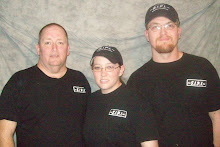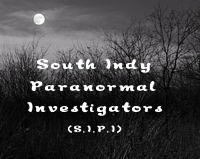he owners of two local cemeteries can't help but grimace as they watch law enforcement officers continue to comb the grounds of Burr Oak Cemetery in Alsip, Ill., where it is estimated that more than 300 bodies were dug up and thrown in a pile so four workers allegedly could resell their plots.
Although they insist the travesty at a predominantly black cemetery in Illinois is an isolated incident, the owners concede it puts a mark on the entire industry nonetheless.
"This is three to four individuals acting on their own to basically not only hurt the families involved, but to destroy the cemetery as well. We're all disturbed by this," said Frank Milles, vice president for administration of StoneMor Partners LP in Levittown, Pa., which oversees more than 280 properties in 29 states, including Calvary Cemetery in Portage.
"This cannot happen at a properly run cemetery without everyone on the property being involved," said David Shipper, president of Indiana Memorial Group, which owns 42 cemeteries including Graceland in Valparaiso.
"In the end we'll find out the whole story. I don't think it's been told yet," Shipper said.
Shipper and Milles were the only two of several cemetery owners in Northwest Indiana who would comment on the Illinois scandal.
Meanwhile, Indiana already has in place rules governing the funeral and cemetery industry, and agencies to oversee those rules, unlike Illinois, where lawmakers are scrambling in the aftermath of the Burr Oak incident to come up with more stringent policies.
Cemeteries are licensed in Indiana, and rules and regulations governing them are provided on the Indiana State Board of Funerals and Cemetery Services Web site, said Molly Butter, information officer for the Indiana Attorney General's Office. Complaints are filed with the Attorney General's Office, and are heard by the state licensing board, she said.
While Butters said there is one complaint before the Attorney General's Office, it has to do with misuse of funds, not disruption of graves.
Indiana rules call for disciplinary action in the event of any fraud, and a 90-day suspension with adjudication if an employee is found to present a danger to the public's health, safety or property. They also state that cemetery plots can be sold by the cemetery owner after 50 years if they are not used and no improvement to the site, such as a monument, has been made. But the plot's owner must be notified.
Illinois Comptroller Dan Hynes wants both Burr Oak and another cemetery owned by Arizona-based Perpetua placed in a receivership. He is calling for Perpetua's $5.9 million in trust funds for cemetery maintenance and prepurchased funerals to be frozen. A hearing is scheduled Friday.
Both Milles and Shipper said while their corporate offices are not located on the cemetery's sites, several management layers would prevent this type of criminal activity from occurring
"We have a local manager on site and a regional team that does individual work at each cemetery. We review records and transactions. I believe we have good control," Milles said.
Shipper said at all his properties there are computerized records, maps of cemetery sections, paper files and burial cards, all of which provide physical evidence of a burial having taken place in a given plot. All of that information is also on computer, he said.
The Chicago Sun-Times contributed to this story.
Subscribe to:
Post Comments (Atom)


No comments:
Post a Comment